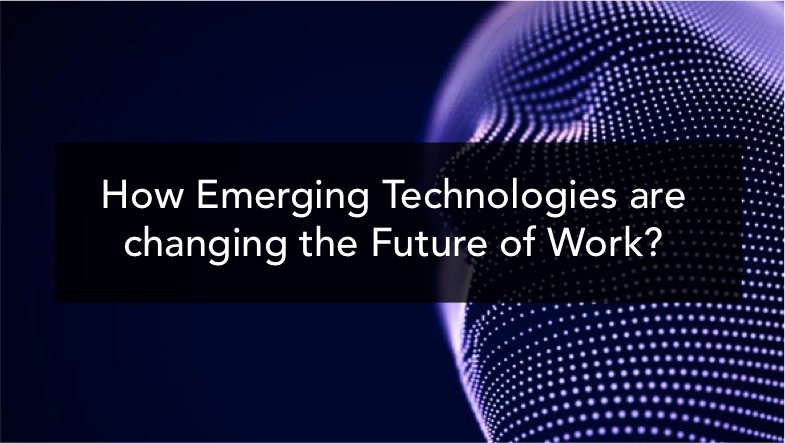The shift in the workplace has already started; thus, tech advancement like Artificial Intelligence (AI) and Robotics are having a striking effect in the workplace.
The term digital marketing is common today, but three decades ago, the term was not known to many people. Just like digital marketing was unknown and uncommon during yester-years, it is sure that the future of work will not be the same as today.
In the wake of technology, the fundamental aim of work is shifting from completing the work into more problem solving, creative, and interactive skills. Factors like big data, real-time information, communication, user experience, commutation, etc. will get leverage.
Experts have estimated that emerging technology will automate many work processes, which will be based on predictive algorithms and accuracies like repetitive tasks, recruitment, back-office duties, diagnostics, and others.
A study from Frey & Osborne’s paper entitled ‘The Future of Employment: How Susceptible Are Jobs to Computerisation?’, it is found that around 47% of jobs in the US is in the high-risk category – i.e., jobs are expected to be automated in the coming decade.
The emerging technology has offered debate between the positive and negative impacts in the workplace. On one side, technology is producing efficiency and quality work, and at the other end, there is a risk of jobs or employment being replaced by machines and technology.
Let’s know about the key emerging technologies to shape the future of work.
Automation
Automation brings productivity, reduces error, increases efficiency, and lowers operational cost in the work process. Automating manual and repetitive tasks helps to increase output and end result and maintains focus on problem-solving and decision-making skills.
The impact of automation is effective in varied industries as it substitutes low-cost manufacturing with less expensive production. Automation is mostly used to free up the employee from a mundane task and focus on valuable tasks. One can see automation in areas of recruitment, medical diagnosis, fraud, and many others.
Artificial Intelligence
When it comes to Artificial Intelligence, commonly known as AI, then there are many speculations stating that it will create as well as take over the jobs. Inevitably AI will impact many industries in a big way, such as health, education, hospitality, retail, and many others.
According to a study by McKinsey Global Institute, about one-fifth of the workforce globally will be affected by AI and automation, mostly impacting developed countries like UK, Germany, and the US.
Robotics
According to recent reports, robotics is used by several organizations to automate repetitive tasks and help make decisions quickly and accurately through predictive algorithms. This means that the industrial robots have taken routine individual functions that are time-consuming with little added value.
A study by McKinsey Global Institute consisting of eight hundred occupations in almost 50 countries reports that nearly more than 800 million jobs, or 20 percent of the global employment, will be taken over by robotics by the year 2030.
Cloud Technology
With the new changes in the digital world and emerging technologies, cloud computing has come into the limelight. Cloud computing is adopted by businesses of all sizes and variations to help organizations with high-quality services and solutions over automated servers, storage management, centralized database, etc.
Cloud-based technologies help streamline business processes, provide collaboration, and increase efficiency.
Final Thoughts
Emerging technologies have already endowed several impacts on the workforce, and with its advancement, it is going to change the future of work. All in all, if we carefully analyze these technologies, then they are, and they will be influencing the nature of work; that is, they will help employees on essential tasks like strategic decision-making, problem analysis, and solution and innovation.
These emerging technologies will present challenges in the initial phase to make a flow. Still, with a proper plan and strategy, one can easily list the ways to benefit employees and the company.
The gamut of technology with Augmented Reality (AR) and Virtual Reality (VR) is even brighter in the near future. It collaborates with technology and real-time information to produce proficient results and quality experience.
Augmenting the experience with Virtual Reality is not just bound to gaming and entertainment. Virtual Reality can eliminate the inconvenience of physical distance and lets one concentrate on the work process.
In the end, it’s a company that has to manage the workflow from the bottom to make proper use of technology while creating growth and value for employees.
Do not miss to read this article:
